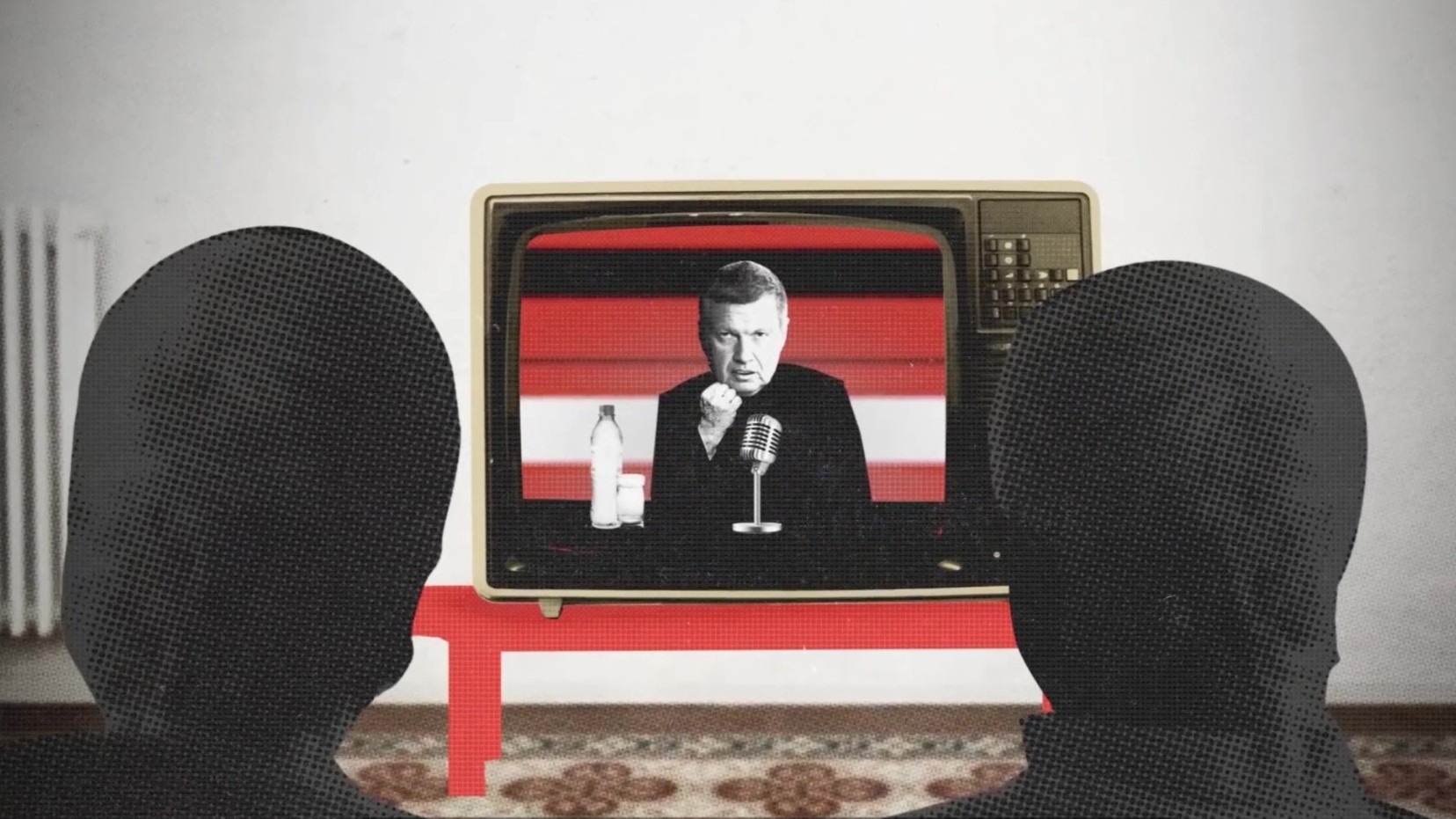Medvedev, Solovyov, Simonyan, and other top Russian propagandists targeted for Hate Speech as a Crime Against Humanity of Persecution

- Six top Russian propagandists, among them a former president, are targeted by a FIDH legal submission under Article 15 of the Rome Statute.
- The International Federation for Human Rights (FIDH), jointly with the Kharkiv Human Rights Protection Group and the Center for Civil Liberties, its Ukrainian member organisations, as well as a Russian NGO, have submitted a Communication to the Office of the Prosecutor of the International Criminal Court (ICC) alleging that six Russian nationals have committed the Crime Against Humanity of Persecution against Ukrainians in the form of hate speech.
- This initiative exposes the criminal nature of hate speech disseminated by Russian propagandists to highlight the role of hate speech in the commission of other international crimes committed in Ukraine and to compel the ICC to investigate these speech acts further.
Paris, Kyiv, The Hague, 6 June 2024: Today, the International Federation for Human Rights (FIDH) submitted a Communication under Article 15 of the Rome Statute to the Office of the Prosecutor of the International Criminal Court (ICC), drawing the Court’s attention to the criminal nature of hate speech in Russian media that has fueled international crimes in Ukraine, and seeking to compel the Prosecutor’s Office to apply for arrest warrants.
The submission targets Dmitry Medvedev, Former President and current Deputy Chairman of the Security Council of the Russian Federation; Vladimir Solovyov, host of a popular television show on the State-owned television channel Russia-1; Margarita Simonyan, Editor-in-Chief of Russia Today, Dmitry Kiselyov, head of the state-owned media group Rossiya Segodnya, and Sergey Mardan, a popular radio and television presenter.. All of them have participated in a hateful campaign against Ukrainian civilians, encouraging and facilitating Russia’s war crimes and other atrocities. FIDH and its partners also believe that Alexey Gromov, First Deputy to the Chief of Staff of the Presidential Executive Office, bears responsibility for the same acts as a superior who has either ordered their commission or failed to prevent them.
Other international crimes facilitated
Since Russia’s full-scale invasion of Ukraine in February 2022, substantial evidence of numerous atrocities committed by Russian armed forces has come to light. Mass killings in Bucha, torture chambers in Kherson, forced transfers of civilians to Russian prisons, and other alleged international crimes, have been accompanied, and potentially facilitated, by the rhetoric used by Russian public figures. Since 2014, and particularly after the large-scale invasion, calls for the destruction of Ukraine and repressions against Ukrainians who oppose Russia’s aggression, denigrating language presenting them as “Nazis”, and other forms of hate speech have been regularly propagated on state-controlled television channels, radio, and social media.
“Every day Ukrainians die under Russian bombs; Ukrainian civilians in the occupation are detained and tortured, Ukrainian children are deported to Russia, all because Russia wants to make them part of the Russian World,” said Oleksandra Matviichuk, FIDH Vice President and Head of the Center for Civil Liberties. “These grave violations of human rights would not be possible without the dehumanizing campaign of Russian propagandists, who are just as guilty as those who pull their triggers killing Ukrainian civilians.”
Article 15 of the Rome Statute allows the ICC Prosecutor to receive information on crimes within the Court’s jurisdiction from non-governmental organizations and to decide whether to open an investigation or to focus on a particular crime. FIDH’s Communication aims to demonstrate that the hate speech by Medvedev, Solovyov, Simonyan, Kiselyov, and Mardan constitutes persecution, a crime against humanity, under Article 7 of the Rome Statute. It also substantiates the responsibility of Gromov for having either ordered or allowed the commission of such acts, under Articles 25 or 28 of the Rome Statute, respectively.
“Hateful rhetoric has played a crucial role in Russia’s criminal campaign in Ukraine”, remarks Ilya Nuzov, Head of the International Justice Desk at FIDH. “Our organizations believe that in the context of crimes against humanity hate speech is a separate offense that warrants greater scrutiny by the International Criminal Court. Our Communication provides ample evidence substantiating the need to further investigate these acts and ultimately issue arrest warrants.
For this Communication, FIDH has analyzed over 2,000 video segments with statements made by the alleged perpetrators between 24 February 2022 and 24 February 2024. To this end, FIDH and its filing partners have collaborated with the Ukraine War Archive and the University of Essex Digital Verification Unit. The 110-page Communication has identified over 300 statements that constitute hate speech amounting to the crime against humanity of persecution. The filing parties have prepared a Q & A summarizing their findings, addressing the reasons behind this submission, and our main requests.
More information about FIDH and its work in Ukraine is available here.
The submission to the International Criminal Court was prepared with the support of the European Union as part of the project “Documenting International Crimes Committed by Russian Armed Forces Following the re-invasion of Ukraine.”
Center for Civil Liberties operates with the support of the European Union.

